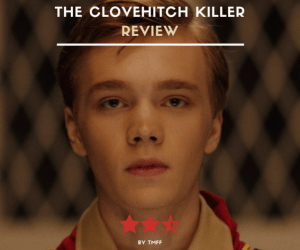Galveston is a recently-released film that takes its name from its setting: a small town in Texas, in the Gulf of Mexico more specifically. As the title does not say much, one could easily think it’s some sort of lighthearted romance in the sunshine, or perhaps some documentary about a certain Gulf of Mexico oil spill. It’s neither of those things, however. Instead, Galveston is a Southern noir in all its splendour: it’s dark, downbeat and depressing. In the very first scene, we learn that the main character, an avid smoker, is diagnosed with what by all means seems to be lung cancer. He starts coughing up blood regularly, and thus the idea of a race against time is reinforced. The question then begs: race against time, with what objective? None, really, and that’s what makes this film a great one: it’s an ode to dashed hopes, unfulfilled dreams and, more than most, irony.
Breaking stereotypes
The situation of the main character doesn’t seem to be a particularly rosy one, and the various mood-defining cues throughout the film do not really point towards a happy ending – whether this actually materializes or not is up to you to find out. Such a dark, uncompromising style has been characteristic to a bunch of great directors, such as Orson Welles, Otto Preminger, Robert Mitchum, John Cromwell, Jean-Pierre Melville, David Mamet and, more recently, Frank Miller. Do you see a striking similarity between them? All of them are male directors. Most of them are Americans – the common geographic playground of noir flicks. The director of Galveston is none of these – not an American man, but a French woman. In terms of acting, Mélanie Laurent’s Hollywood debut was as one of the leads in Quentin Tarantino’s Inglorious Basterds. When it comes to directing, she had 7 films under her belt prior to Galveston – but all French productions. So, it was the first time she directed a film in the English language, set in Southern US, and she completely nailed it: the pessimistic atmosphere oozes from all the film’s pores, the camerawork is sublime and the result is way ahead of any recent noir attempts I’ve recently watched. This proves that we, as viewers, should ideally rise above stereotypes before judging the quality of a film.
Working with a great script
Of course, part of Laurent’s success was working with a great script. Based on a novel by Nic Pizzolatto, and written by… Nic Pizzolatto, the script was exactly what I expected from the mastermind behind True Detective. It’s an emotional roller-coaster that makes no compromises, and delivers its points in simple fashion, but in a very non-Hollywood style. Of course, this means that it’s not going to be a treat for everybody: Galveston’s cruel realism brilliantly captures its decrepit Southern allure, while an action-packed intro makes promises that it later does not deliver. The film never turns into a bloody shootout showcase, and instead paces itself more steadily and takes plenty of time to work on the characters instead of advancing the plot – such a structure delighted me, but would surely disappoint a mainstream public’s longing for a solid action film, which they’re not going to find in Galveston. This is already clear, given the very mixed reception it got so far. However, for someone who appreciates a solid character study and prefers a film with heart instead of one with plentiful explosions, Galveston is a 90-minute task I would surely recommend!

















